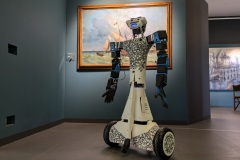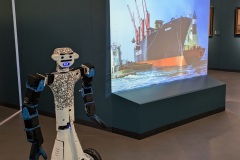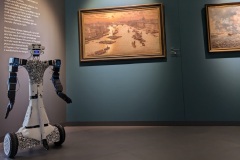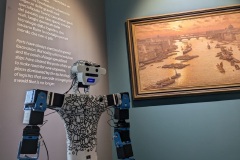Alter-ego welcomes and accompanies visitors at Galata Museo del Mare: a Spoke 4 project

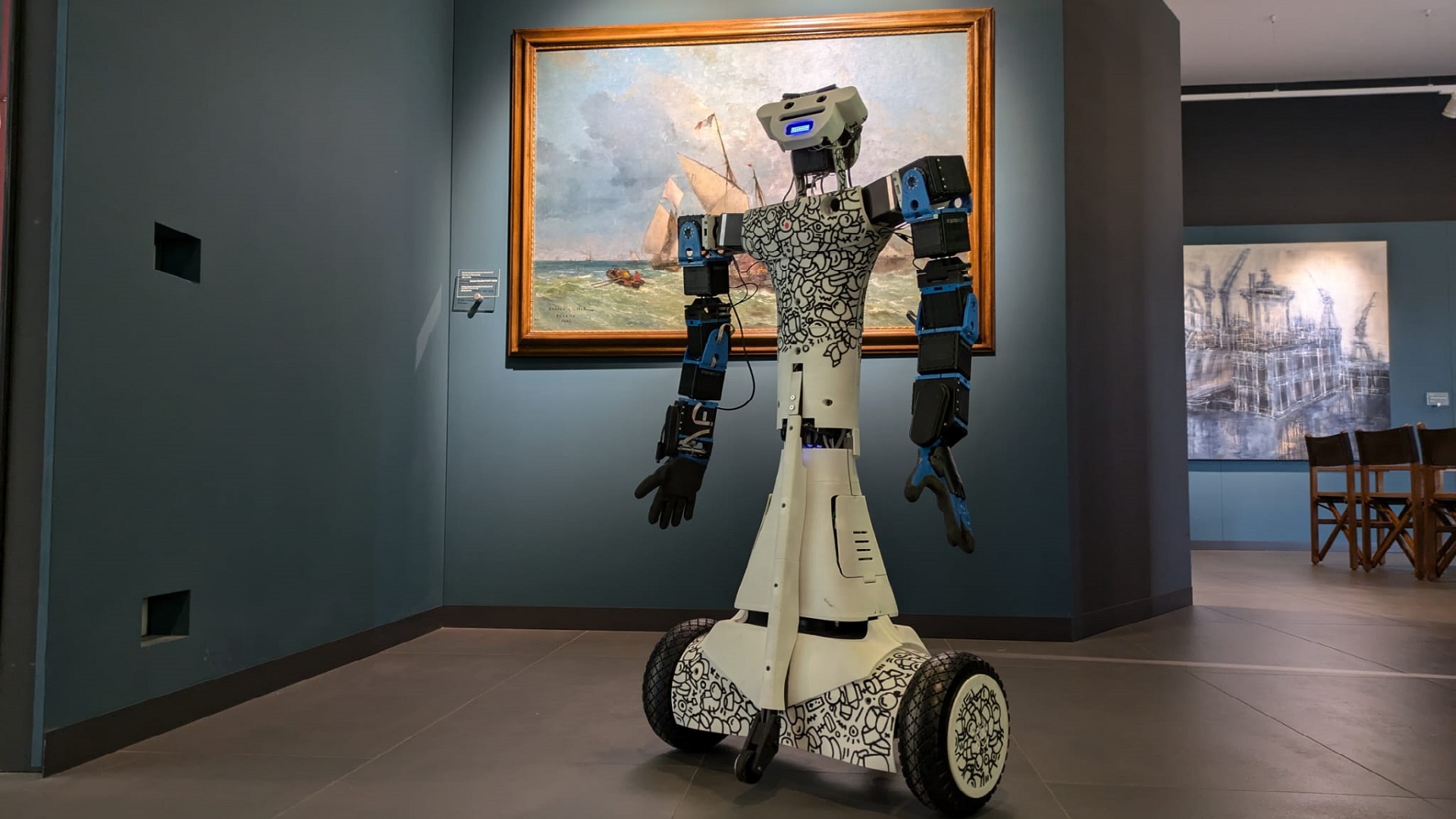
From 9 to 11 October at Galata Museo del Mare “Alter-Ego”, the humanoid robot designed by the IIT, accompanied visitors to discover the permanent exhibition at the fourth floor of the museum as part of a RAISE Spoke 4 project .
“Alter-Ego”, after an initial test phase, is finally ready to welcome visitors and it did so on the fourth floor of the Galata Museo del Mare, in the Clerici room where it helped visitors on discovering news and curiosities regarding the works of the permanent exhibition Navigare nell’Arte, of the Paolo and Giuliana Clerici Foundation.
For the first time, a humanoid robot from IIT is being tested inside a Genoese museum: the objective of this project is to optimize the visitors’ experience.
The University of Genoa and CNR will analyze the results to evaluate the effectiveness of this approach in increasing the attractiveness of some museum rooms.
Alter-Ego, developed by the Soft Robotics for Human Cooperation and Rehabilitation research unit coordinated by Antonio Bicchi, is a humanoid robot approximately 140 cm high, which moves on wheels and is equipped with poly-articulated hands, used to interface with the surroundings by opening doors and grabbing objects. Designed to function as a robotic avatar of humans, Alter-Ego can operate in two modes: remote controlled by a human operator via visor and joystick, or in autonomous mode interacting socially with those around it. The latter, developed in collaboration with the IIT COgNiTive Architecture for Collaborative Technologies unit coordinated by Alessandra Sciutti, is the one that was visible inside the museum, where the robot interacted independently and immediately with the visitors.
“As part of the PNRR project and in collaboration with UNIGE and CNR, we brought our robot Alter-Ego to Galata to support the visit to the exhibition “Navigare nell’arte”.
Alter-Ego welcomes visitors at the entrance to the exhibition with a voice and natural movements that immediately put the visitor at ease. Through new artificial intelligence technologies, Alter-ego presents the contents of the exhibition and understands the visitor’s preferences through targeted questions. Based on preferences, the robot creates a personalized visit route that can also take into account any perceptual or motor difficulties of the visitor. This gives us the possibility of understanding how an autonomous robot can assist individuals in explorations of a real environment with the support of many digital contents, which would otherwise be difficult to communicate, and regarding what is preserved in the environment.” Comments Francesco Rea from the COgNiTive Architecture for Collaborative Technologies Lab of IIT who followed and coordinated the phases of the demonstrator carried out at the Galata Museo del Mare.

